CHEMICAL IDENTIFICATION
-
RTECS NUMBER :
-
WH8605000
-
CHEMICAL NAME :
-
Stannane, tetrabutyl-
-
CAS REGISTRY NUMBER :
-
1461-25-2
-
BEILSTEIN REFERENCE NO. :
-
3648237
-
LAST UPDATED :
-
199712
-
DATA ITEMS CITED :
-
35
-
MOLECULAR FORMULA :
-
C16-H36-Sn
-
MOLECULAR WEIGHT :
-
347.21
-
WISWESSER LINE NOTATION :
-
4-SN-4&4&4
HEALTH HAZARD DATA
ACUTE TOXICITY DATA
-
TYPE OF TEST :
-
Standard Draize test
-
ROUTE OF EXPOSURE :
-
Administration into the eye
-
SPECIES OBSERVED :
-
Rodent - rabbit
-
REFERENCE :
-
85JCAE "Prehled Prumyslove Toxikologie; Organicke Latky," Marhold, J., Prague, Czechoslovakia, Avicenum, 1986 Volume(issue)/page/year: -,1251,1986 ** ACUTE TOXICITY DATA **
-
TYPE OF TEST :
-
LD50 - Lethal dose, 50 percent kill
-
ROUTE OF EXPOSURE :
-
Oral
-
SPECIES OBSERVED :
-
Rodent - mouse
-
DOSE/DURATION :
-
6 gm/kg
-
TOXIC EFFECTS :
-
Details of toxic effects not reported other than lethal dose value
-
REFERENCE :
-
JPMSAE Journal of Pharmaceutical Sciences. (American Pharmaceutical Assoc., 2215 Constitution Ave., NW, Washington, DC 20037) V.50- 1961- Volume(issue)/page/year: 56,240,1967
-
TYPE OF TEST :
-
LDLo - Lowest published lethal dose
-
ROUTE OF EXPOSURE :
-
Intraperitoneal
-
SPECIES OBSERVED :
-
Rodent - mouse
-
DOSE/DURATION :
-
174 mg/kg
-
TOXIC EFFECTS :
-
Peripheral Nerve and Sensation - flaccid paralysis without anesthesia (usually neuromuscular blockage) Behavioral - muscle weakness
-
REFERENCE :
-
APFRAD Annales Pharmaceutiques Francaises. (SPPIF, B.P.22, F-41353 Vineuil, France) V.1- 1943- Volume(issue)/page/year: 14,88,1956
-
TYPE OF TEST :
-
LD50 - Lethal dose, 50 percent kill
-
ROUTE OF EXPOSURE :
-
Intravenous
-
SPECIES OBSERVED :
-
Rodent - mouse
-
DOSE/DURATION :
-
56 mg/kg
-
TOXIC EFFECTS :
-
Details of toxic effects not reported other than lethal dose value
-
REFERENCE :
-
CSLNX* U.S. Army Armament Research & Development Command, Chemical Systems Laboratory, NIOSH Exchange Chemicals. (Aberdeen Proving Ground, MD 21010) Volume(issue)/page/year: NX#02221
-
TYPE OF TEST :
-
LDLo - Lowest published lethal dose
-
ROUTE OF EXPOSURE :
-
Intramuscular
-
SPECIES OBSERVED :
-
Rodent - mouse
-
DOSE/DURATION :
-
1389 mg/kg
-
TOXIC EFFECTS :
-
Peripheral Nerve and Sensation - flaccid paralysis without anesthesia (usually neuromuscular blockage) Behavioral - muscle weakness
-
REFERENCE :
-
APFRAD Annales Pharmaceutiques Francaises. (SPPIF, B.P.22, F-41353 Vineuil, France) V.1- 1943- Volume(issue)/page/year: 14,88,1956
-
TYPE OF TEST :
-
LDLo - Lowest published lethal dose
-
ROUTE OF EXPOSURE :
-
Parenteral
-
SPECIES OBSERVED :
-
Rodent - mouse
-
DOSE/DURATION :
-
347 mg/kg
-
TOXIC EFFECTS :
-
Peripheral Nerve and Sensation - flaccid paralysis without anesthesia (usually neuromuscular blockage)
-
REFERENCE :
-
COREAF Comptes Rendus Hebdomadaires des Seances, Academie des Sciences. (Paris, France) V.1-261, 1835-1965. For publisher information, see CRASEV. Volume(issue)/page/year: 239,1091,1954
-
TYPE OF TEST :
-
LDLo - Lowest published lethal dose
-
ROUTE OF EXPOSURE :
-
Oral
-
SPECIES OBSERVED :
-
Rodent - rabbit
-
DOSE/DURATION :
-
>5 gm/kg
-
TOXIC EFFECTS :
-
Details of toxic effects not reported other than lethal dose value
-
REFERENCE :
-
SAIGBL Sangyo Igaku. Japanese Journal of Industrial Health. (Nippon Sangyo Eisei Igakkai, Kosu Eisei Bldg., 1-29-8, Shinjuku, Shinjuku-ku, Tokyo 160, Japan) V.1- 1959- Volume(issue)/page/year: 15,3,1973
-
TYPE OF TEST :
-
LDLo - Lowest published lethal dose
-
ROUTE OF EXPOSURE :
-
Administration onto the skin
-
SPECIES OBSERVED :
-
Rodent - rabbit
-
DOSE/DURATION :
-
2 gm/kg
-
TOXIC EFFECTS :
-
Details of toxic effects not reported other than lethal dose value
-
REFERENCE :
-
SAIGBL Sangyo Igaku. Japanese Journal of Industrial Health. (Nippon Sangyo Eisei Igakkai, Kosu Eisei Bldg., 1-29-8, Shinjuku, Shinjuku-ku, Tokyo 160, Japan) V.1- 1959- Volume(issue)/page/year: 15,3,1973 ** REPRODUCTIVE DATA **
-
TYPE OF TEST :
-
TDLo - Lowest published toxic dose
-
ROUTE OF EXPOSURE :
-
Oral
-
DOSE :
-
3916 mg/kg
-
SEX/DURATION :
-
female 13-15 day(s) after conception
-
REFERENCE :
-
JJATDK JAT, Journal of Applied Toxicology. (John Wiley & Sons Ltd., Baffins Lane, Chichester, W. Sussex PO19 1UD, UK) V.1- 1981- Volume(issue)/page/year: 16,71,1996 *** REVIEWS *** ACGIH TLV-TWA 0.1 mg(Sn)/m3;STEL 0.2 mg/m3 (skin) DTLVS* The Threshold Limit Values (TLVs) and Biological Exposure Indices (BEIs) booklet issues by American Conference of Governmental Industrial Hygienists (ACGIH), Cincinnati, OH, 1996 Volume(issue)/page/year: TLV/BEI,1997 ACGIH TLV-Not classifiable as a human carcinogen DTLVS* The Threshold Limit Values (TLVs) and Biological Exposure Indices (BEIs) booklet issues by American Conference of Governmental Industrial Hygienists (ACGIH), Cincinnati, OH, 1996 Volume(issue)/page/year: TLV/BEI,1997 *** U.S. STANDARDS AND REGULATIONS *** MSHA STANDARD-air:TWA 0.1 mg(Sn)/m3 DTLVS* The Threshold Limit Values (TLVs) and Biological Exposure Indices (BEIs) booklet issues by American Conference of Governmental Industrial Hygienists (ACGIH), Cincinnati, OH, 1996 Volume(issue)/page/year: 3,258,1971 OSHA PEL (Gen Indu):8H TWA 0.1 mg(Sn)/m3 CFRGBR Code of Federal Regulations. (U.S. Government Printing Office, Supt. of Documents, Washington, DC 20402) Volume(issue)/page/year: 29,1910.1000,1994 OSHA PEL (Construc):8H TWA 0.1 mg(Sn)/m3 CFRGBR Code of Federal Regulations. (U.S. Government Printing Office, Supt. of Documents, Washington, DC 20402) Volume(issue)/page/year: 29,1926.55,1994 OSHA PEL (Shipyard):8H TWA 0.1 mg(Sn)/m3 CFRGBR Code of Federal Regulations. (U.S. Government Printing Office, Supt. of Documents, Washington, DC 20402) Volume(issue)/page/year: 29,1915.1000,1993 OSHA PEL (Fed Cont):8H TWA 0.1 mg(Sn)/m3 CFRGBR Code of Federal Regulations. (U.S. Government Printing Office, Supt. of Documents, Washington, DC 20402) Volume(issue)/page/year: 41,50-204.50,1994 *** OCCUPATIONAL EXPOSURE LIMITS *** OEL-AUSTRALIA:TWA 0.1 mg(Sn)/m3;Skin JAN 1993 OEL-BELGIUM:TWA 0.1 mg(Sn)/m3;Skin JAN 1993 OEL-DENMARK:TWA 0.1 mg(Sn)/m3;Skin JAN 1993 OEL-FINLAND:TWA 0.1 mg(Sn)/m3;STEL 0.3 mg(Sn)/m3;Skin JAN 1993 OEL-FRANCE:TWA 0.1 mg(Sn)/m3;STEL 0.2 mg(Sn)/m3 JAN 1993 OEL-GERMANY:TWA 0.1 mg(Sn)/m3;Skin JAN 1993 OEL-HUNGARY:STEL 0.1 mg(Sn)/m3;Skin JAN 1993 OEL-THE NETHERLANDS:TWA 0.1 mg(Sn)/m3;Skin JAN 1993 OEL-THE PHILIPPINES:TWA 0.1 mg(Sn)/m3 JAN 1993 OEL-SWEDEN:TWA 0.1 mg(Sn)/m3;STEL 0.2 mg(Sn)/m3;Skin JAN 1993 OEL-SWITZERLAND:TWA 0.1 mg(Sn)/m3;STEL 0.2 mg(Sn)/m3;Skin JAN 1993 OEL-THAILAND:TWA 0.1 mg(Sn)/m3 JAN 1993 OEL-UNITED KINGDOM:TWA 0.1 mg(Sn)/m3;STEL 0.2 mg(Sn)/m3;Skin JAN 1993 OEL IN BULGARIA, COLOMBIA, JORDAN, KOREA check ACGIH TLV OEL IN NEW ZEALAND, SINGAPORE, VIETNAM check ACGIH TLV *** NIOSH STANDARDS DEVELOPMENT AND SURVEILLANCE DATA *** NIOSH RECOMMENDED EXPOSURE LEVEL (REL) : NIOSH REL TO ORGANOTIN COMPOUND-air:10H TWA 0.1 mg(Sn)/m3 REFERENCE : NIOSH* National Institute for Occupational Safety and Health, U.S. Dept. of Health, Education, and Welfare, Reports and Memoranda. Volume(issue)/page/year: DHHS #92-100,1992
|
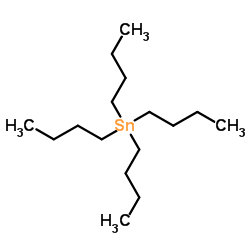
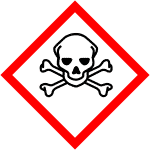
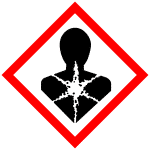




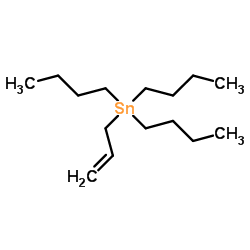 CAS#:24850-33-7
CAS#:24850-33-7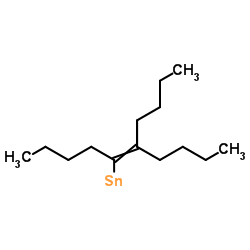 CAS#:7486-35-3
CAS#:7486-35-3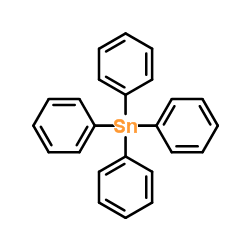 CAS#:595-90-4
CAS#:595-90-4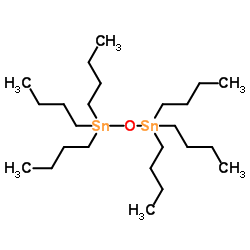 CAS#:56-35-9
CAS#:56-35-9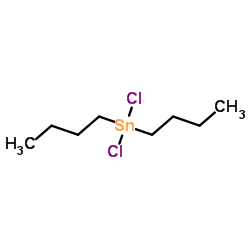 CAS#:683-18-1
CAS#:683-18-1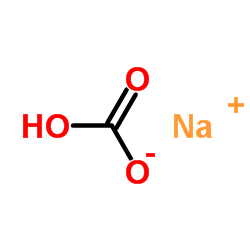 CAS#:144-55-8
CAS#:144-55-8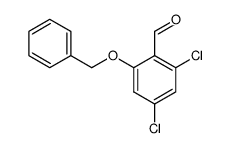 CAS#:78443-73-9
CAS#:78443-73-9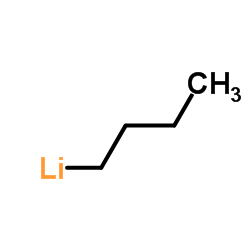 CAS#:109-72-8
CAS#:109-72-8![tributyl-[1-(methoxymethoxy)cyclohexyl]stannane Structure](https://www.chemsrc.com/caspic/207/89727-03-7.png) CAS#:89727-03-7
CAS#:89727-03-7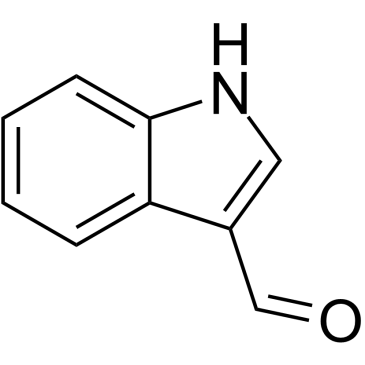 CAS#:487-89-8
CAS#:487-89-8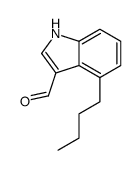 CAS#:111735-91-2
CAS#:111735-91-2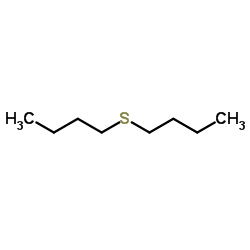 CAS#:544-40-1
CAS#:544-40-1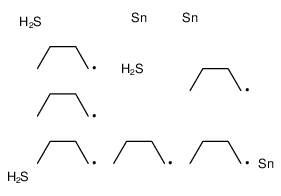 CAS#:16892-65-2
CAS#:16892-65-2 CAS#:563-25-7
CAS#:563-25-7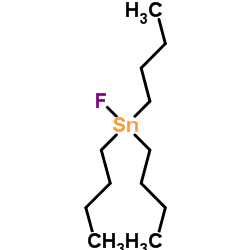 CAS#:1983-10-4
CAS#:1983-10-4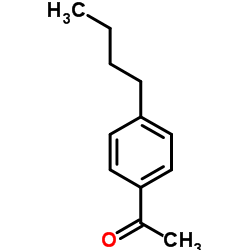 CAS#:37920-25-5
CAS#:37920-25-5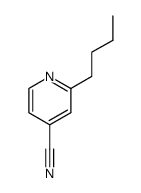 CAS#:72679-69-7
CAS#:72679-69-7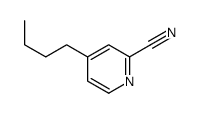 CAS#:142730-56-1
CAS#:142730-56-1 CAS#:629-45-8
CAS#:629-45-8
